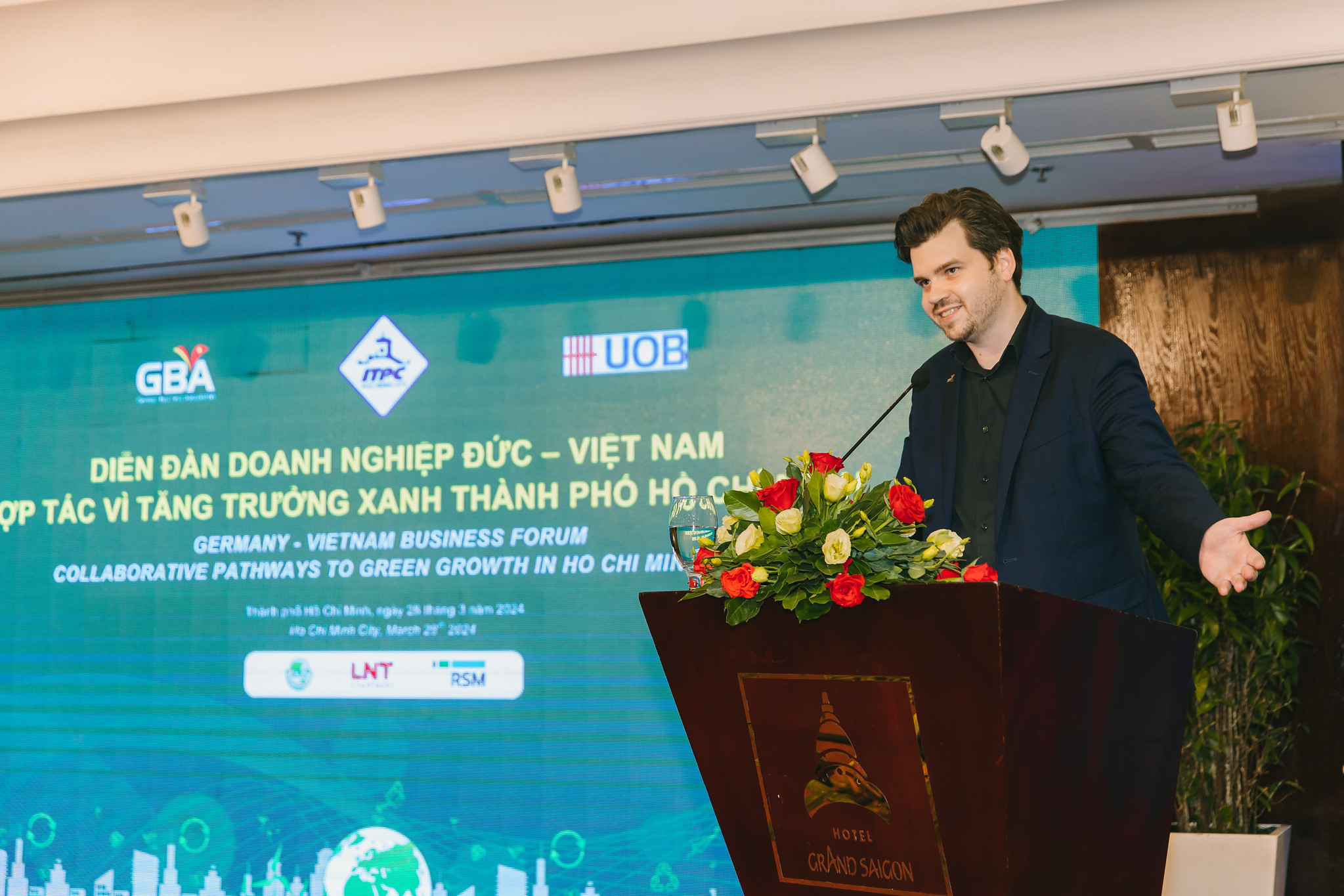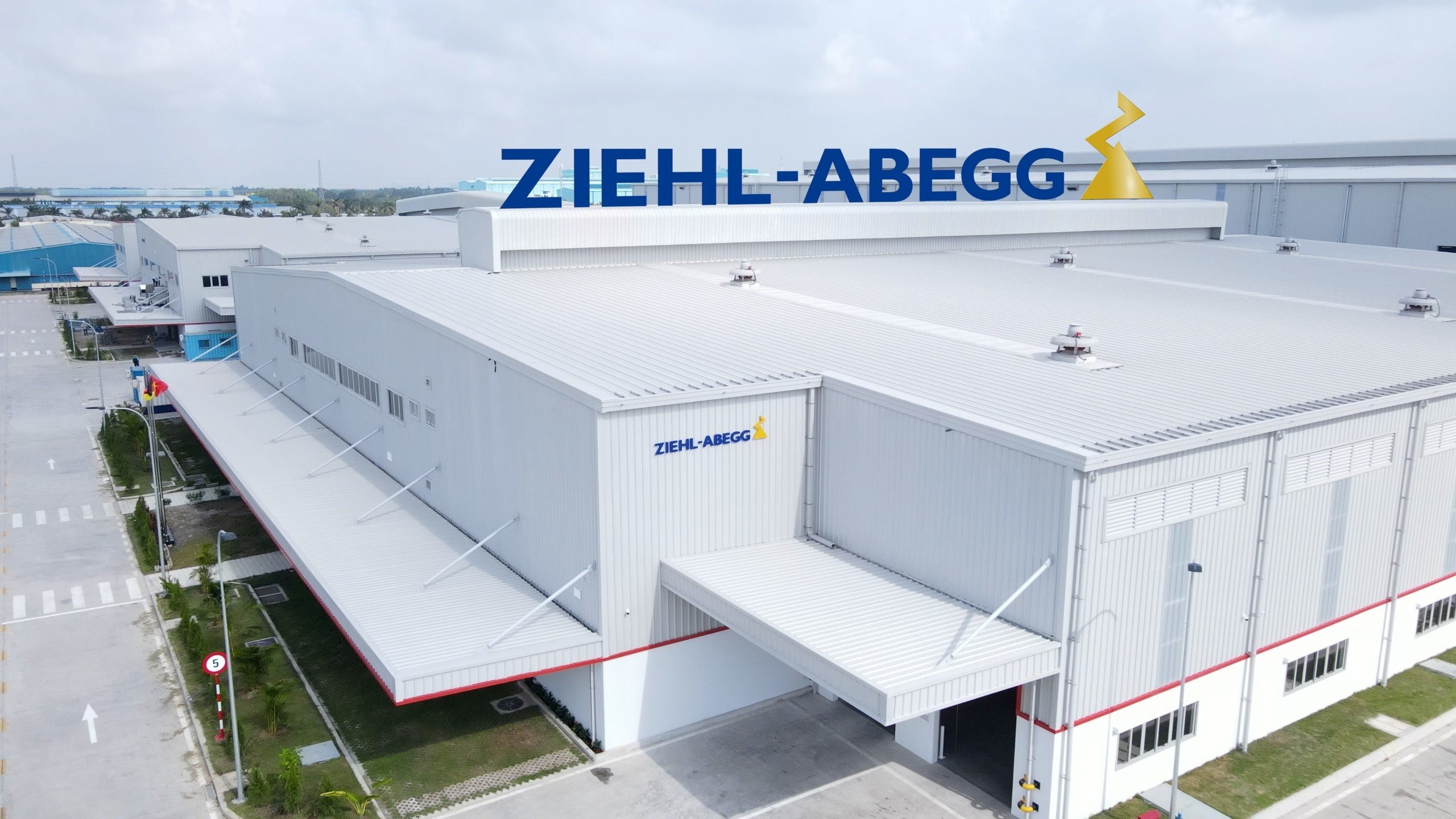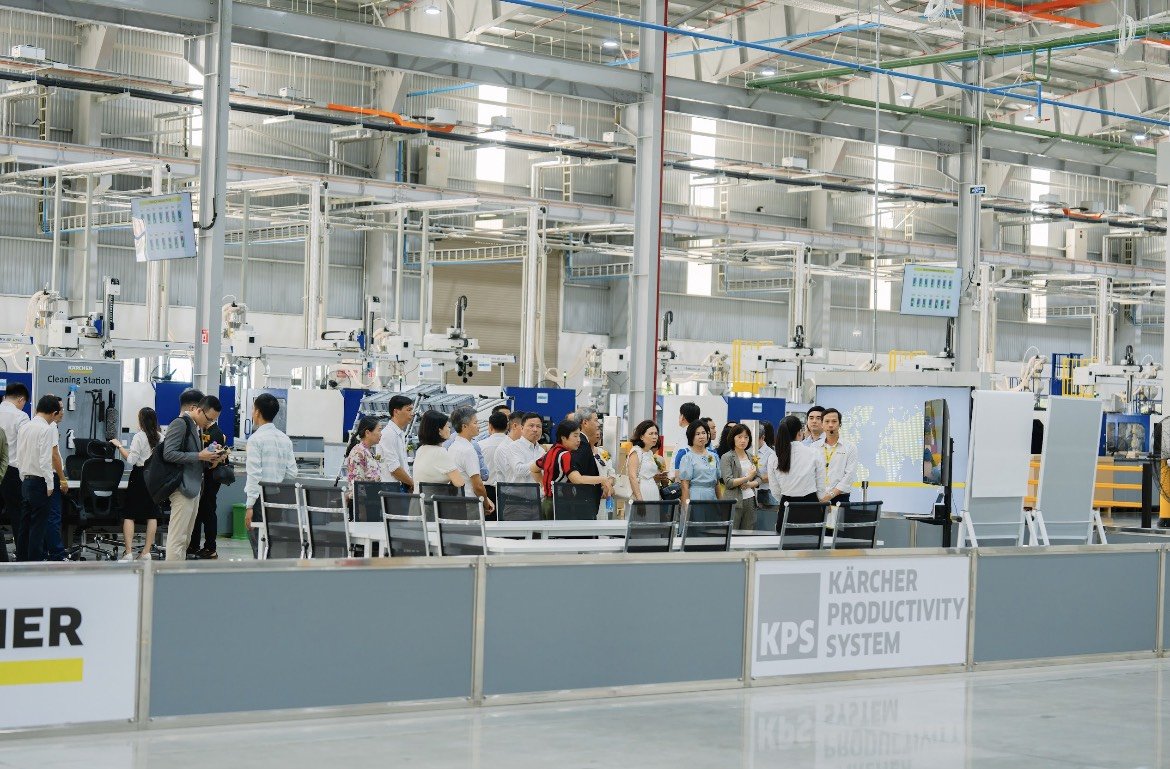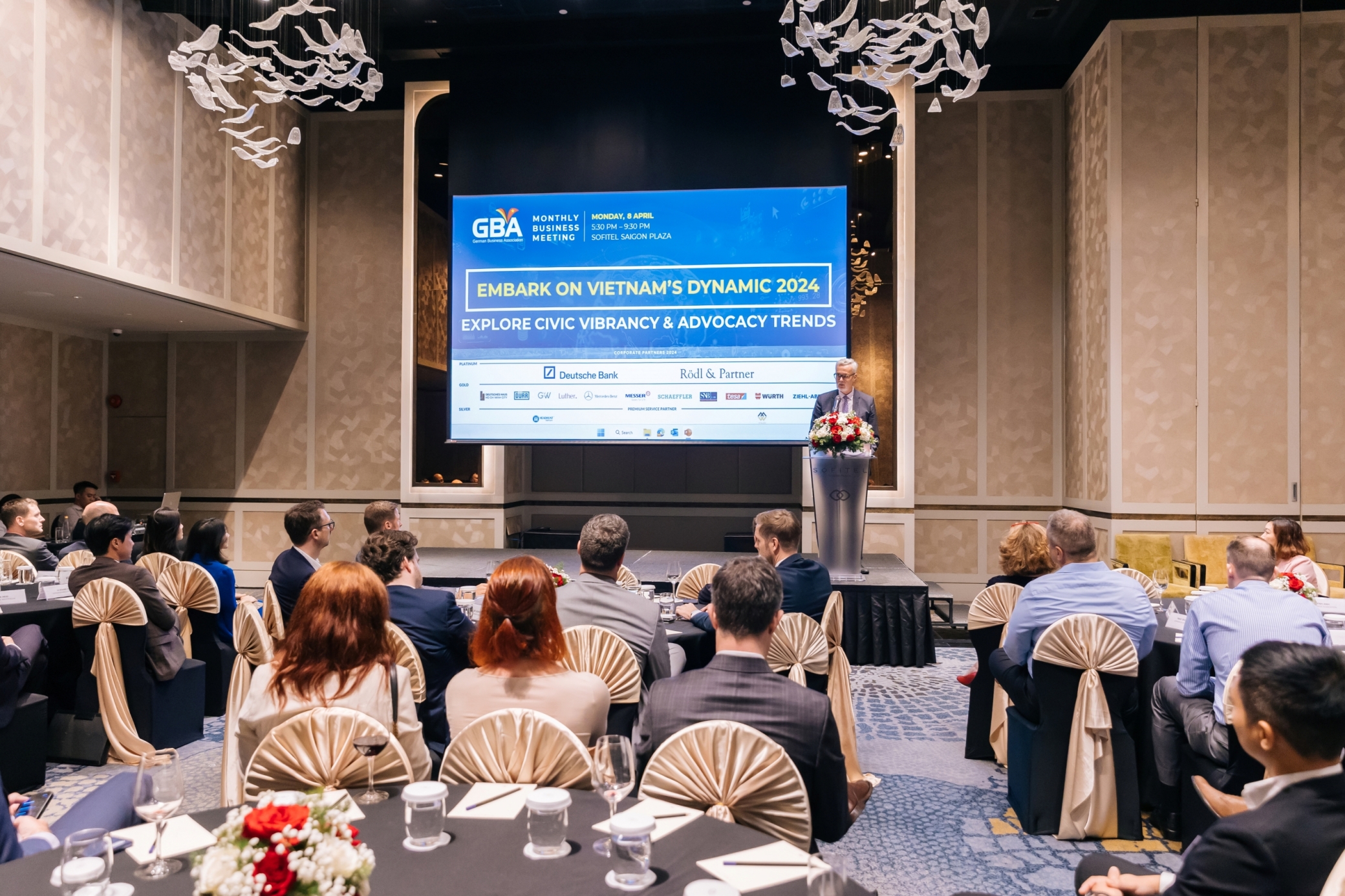The German Business Association (GBA) in Vietnam has announced significant strides in the second quarter of 2024, underscoring the expansion of German businesses and the pivotal role of future-minded actions in the Southeast Asian country’s economic landscape, with green investment in mind.
Despite facing challenges, German enterprises continue to demonstrate their commitment to sustainable development and innovation in Vietnam.
German investment in Vietnam sees continued growth
In recent months, two prominent German companies, Ziehl-Abegg and Kärcher, have made headlines with substantial expansions in Vietnam, the GBA said in a press release on Monday.
These expansions not only reflect the growing confidence of German businesses in the Vietnamese market but also highlight the strategic importance of Vietnam as a hub for industrial production and innovation.
Ziehl-Abegg, a global leader in ventilation, control, and drive technology, has inaugurated a new production facility in Dong Nai Province, southern Vietnam.
This US$20-million plant is expected to play a crucial role in the company’s global supply chain, leveraging Vietnam’s skilled workforce and favorable production conditions.
The facility will focus on producing advanced ventilation systems and electric drives, catering to both domestic and international markets.
|
|
| A view of Ziehl-Abegg's new factory in Dong Nai Province, southern Vietnam |
Kärcher, renowned worldwide for its innovative cleaning solutions, has also opened a new production plant at Tam Hiep Port Logistics Industrial Park in Quang Nam Province, central Vietnam.
This facility, with a total investment of over VND500 billion (US$19.7 million), includes a 13,500 m² factory and 1,600 m² of office space.
This expansion is part of Kärcher’s broader strategy to meet the growing demand for its products in the Asian market.
By establishing a significant presence in Vietnam, Kärcher aims to capitalize on the country’s strategic location, improving industrial infrastructure, and burgeoning consumer market.
|
|
| Inside the Kärcher factory in Quang Nam Province, central Vietnam |
In 2019, as part of its cultural sponsoring, Kärcher cleaned the southern main gateway of the former imperial city of Hue in central Vietnam.
Greening FDI: Unwavering commitment from German business community in Vietnam
A crucial focus for the GBA in 2024 is the development of green energy solutions. As the world increasingly shifts toward sustainable practices, the importance of green energy cannot be overstated.
The GBA members’ commitment, ‘Greening FDI: Investment Capital in Ho Chi Minh City,’ underscores the significance of sustainable investments in driving economic growth and environmental sustainability.
This initiative aims to attract eco-friendly foreign direct investment (FDI) to Ho Chi Minh City and promote the adoption of energy-efficient technologies.
By encouraging businesses to invest in green energy solutions, the GBA seeks to reduce Vietnam’s carbon footprint and contribute to global efforts to combat climate change.
In line with this, the GBA members have been actively involved in future-minded actions such as optimizing green energy production to enhance the efficiency of the FDI sector and developing renewable energy projects to ensure long-term energy security and sustainability.
These projects include the development of solar, wind, and biomass energy, which have the potential to transform Vietnam’s energy landscape.
“Our commitment to green energy is unwavering,” said Alexander Ziehe, chairman of the GBA.
“We, GBA, believe that sustainable investments are key to long-term economic growth and environmental protection.
“By working together with local and international partners, we can create a greener and more prosperous future for Vietnam.”
Challenges in investment environment
The recent increase in German business activities in Vietnam is clearly a positive signal for the investment market.
However, Vietnam's investment environment still poses obstacles for foreign enterprises.
The main challenges faced by German businesses include ‘post-investment’ administrative procedures, infrastructure connectivity, and transparency in preferential policy frameworks.
“Vietnam offers significant opportunities, but navigating the regulatory landscape can be complex,” said Ziehe.
“We are committed to working with local authorities to simplify processes and create a more transparent environment for foreign investors.”
Regulatory complexities often pose significant challenges for foreign businesses looking to invest in Vietnam.
The country’s regulatory landscape is evolving and businesses must stay abreast of the latest changes to ensure compliance.
Navigating these complexities requires a deep understanding of local laws and regulations, which can be a daunting task for foreign investors.
Infrastructure bottlenecks also pose a challenge to the smooth operation of businesses in Vietnam.
While the country has made significant strides in improving its infrastructure, there are still areas that require attention, including logistics and transportation networks.
Supporting German businesses through challenges
Vietnam’s strategic importance in Asia continues to grow, but the investment journey is not without its hurdles.
The country’s dynamic economy, young workforce, and strategic location make it an attractive destination for business expansion.
However, German businesses face several challenges that require concerted efforts and support.
|
|
| Dr. Guido Hildner, German Ambassador to Vietnam, is seen speaking at the GBA Business Meeting - Embark on Vietnam’s Dynamic 2024 in Ho Chi Minh City, April 2024. |
First and foremost, Vietnam’s economy has demonstrated remarkable resilience and growth in recent years.
Despite global economic uncertainties, Vietnam has managed to maintain a stable and robust economic performance.
This resilience is attributed to the country’s diversified economy, strong export sector, and prudent economic policies.
This is a crucial consideration for foreign investors, particularly those businesses unfamiliar with the Vietnamese market.
“Vietnam’s potential is immense, but it is crucial that we navigate the challenges effectively,” said Ziehe.
“The GBA is dedicated to supporting German businesses every step of the way, ensuring they can thrive in this promising market.”
Furthermore, Vietnam’s young and dynamic workforce is a significant asset for businesses looking to invest in the region.
According to the GBA chairman, this Southeast Asian country boasts a large pool of skilled and educated workers, providing a competitive advantage for industries that rely on human capital.
The GBA’s ongoing initiatives and partnerships aim to capitalize on these strengths, fostering a robust economic relationship between Germany and Vietnam.
By promoting bilateral trade and investment, the GBA seeks to create opportunities for businesses to thrive and contribute to the economic development of both countries.
The GBA was one of the first foreign business associations in Vietnam, starting its activities in 1995.
For 30 years, the GBA has been the focal point of German business life, culture, and values in Vietnam.
It has assisted German businesses in developing their operations, provided advice on a wide array of topics, and facilitated opportunities for business and social exchange throughout Vietnam.
Currently, the GBA has nearly 400 members and corporate partners, a reflection of the opportunities and dynamics of the Vietnamese market.
It is one of the largest foreign business associations in Vietnam and is highly respected within the local community.
The GBA was a founding member of EuroCham Vietnam, a partnership that represents pan-European activities and interests in the Southeast Asian nation.
Like us on Facebook or follow us on X to get the latest news about Vietnam!





















































